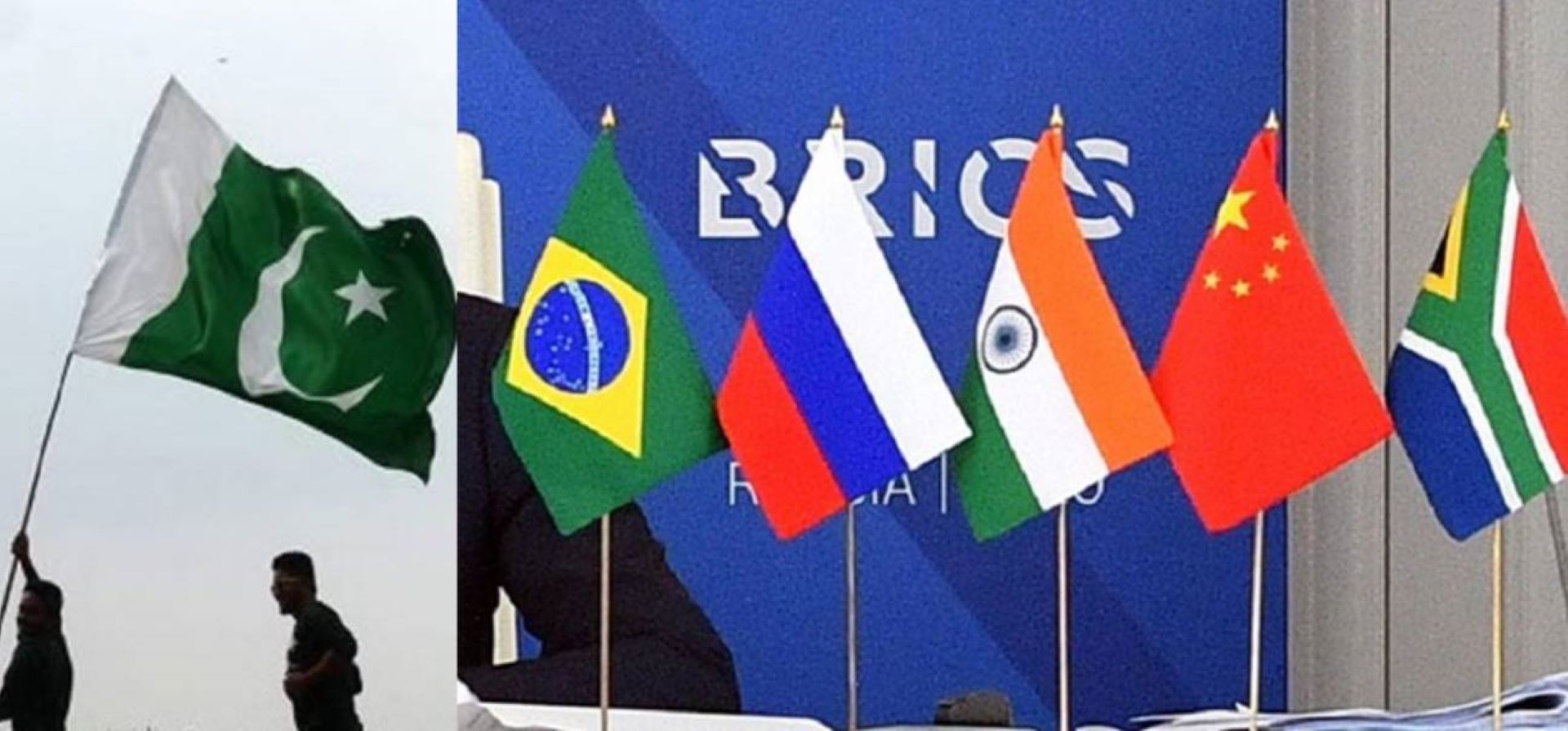
In the corridors of international diplomacy, a new chapter unfolds as Islamabad officially throws its hat into the ring, vying for membership in the BRICS group.
Pakistan’s ambitious bid to join the BRICS group of nations in 2024 has stirred diplomatic efforts and raised geopolitical considerations, especially in light of its historical tensions with regional rival India. In an interview with TASS, Pakistan’s newly-appointed Ambassador to Russia, Muhammad Khalid Jamali, revealed that the country had formally applied for BRICS membership, with aspirations to become a member under Russia’s presidency in 2024. The application, confirmed by Pakistan’s Foreign Ministry spokesperson Mumtaz Zahra Baloch, signifies Islamabad’s aspiration to play a significant role in international cooperation and inclusive multilateralism within the influential bloc consisting of Brazil, Russia, India, China, and South Africa.
This announcement comes amid Pakistan’s strategic efforts to secure Russia’s support for its BRICS membership bid in 2024. In a move to strengthen ties with Moscow, Pakistan is actively collaborating with Russia to establish direct flights between the two nations, aiming to bolster people-to-people contacts and trade relations.
The relationship between Russia and Pakistan has witnessed notable developments, including Pakistan’s import of Russian crude oil, a significant transaction conducted in Chinese yuan, breaking away from traditional dollar transactions. However, tensions arose when reports suggested Pakistan’s involvement in providing ammunition to Ukraine, prompting cautious responses from Russian officials.
Pakistan’s application to join BRICS is part of a broader trend wherein developing nations are seeking alternatives to the western-dominated global order.
BRICS, formed in 2010, has evolved into a prominent bloc challenging the influence of the United States and its Western allies. At the 15th BRICS Summit in South Africa, six countries, including Iran and Saudi Arabia, were invited to join in 2024, indicating the bloc’s expanding reach.
Pakistan’s bid faces challenges, especially considering India’s historical opposition. India, a current BRICS member, has expressed reservations about Pakistan’s inclusion, rooted in strategic considerations. Pakistan’s potential membership in BRICS raises complex questions about cooperation within a multilateral framework, considering the longstanding animosities between India and Pakistan.
While obstacles are substantial, the potential gains for Pakistan from BRICS membership could outweigh the challenges. Access to resources, investment opportunities, and a platform to address common developmental issues are among the incentives. China, a pivotal member of BRICS and a close ally of Pakistan, could play a decisive role in bridging the gap between the two South Asian nations.
BRICS membership could also provide Pakistan with leverage against the stringent conditions imposed by western-dominated financial institutions like the International Monetary Fund (IMF). The bloc’s creation of financial institutions such as the New Development Bank (NDB) and the Contingent Reserve Arrangement (CRA) offers alternatives that align with Pakistan’s economic interests.
Furthermore, joining BRICS could enhance Pakistan’s geopolitical influence, allowing it to collaborate with emerging powers on global issues. This move could potentially lead to reforms in the global governance structure, fostering a more equitable international order.
Despite India’s potential opposition, the geopolitical dynamics are evolving.
India’s recent support for BRICS expansion suggests a changing stance, potentially reducing the hurdles for Pakistan’s membership. However, the intricate interplay of geopolitics, historical tensions, and diplomatic maneuvers will shape the trajectory of Pakistan’s bid and the broader dynamics within the BRICS bloc.
In conclusion, Pakistan’s bid to join BRICS signifies a strategic move with both geopolitical challenges and economic opportunities. Sailing across these complexities requires deft diplomacy, collaboration with key allies like Russia and China, and a careful balance of regional dynamics. Thus, the story of Pakistan’s bid to join BRICS remains an ongoing saga, one that will not only shape the nation’s global standing but also influence the destiny of the BRICS bloc as it evolves into a leading force in the Global South.


















Leave a Reply